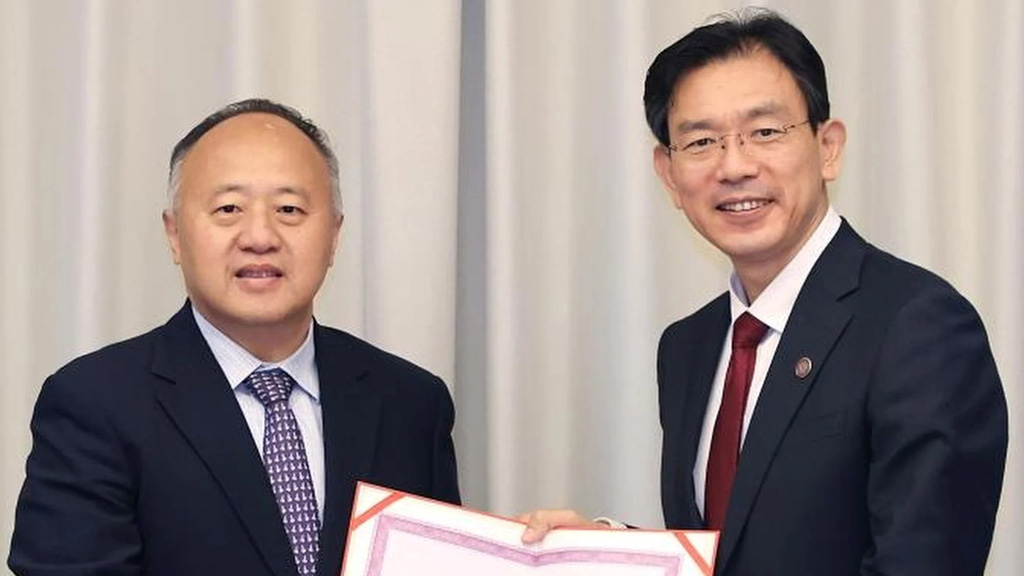Desk Reports:
Renowned statistician and longtime Harvard University professor Liu Jun has returned to China permanently. He recently took up the position of ‘Tsinghua Distinguished Chair Professor at Tsinghua University’ in China, according to a report in the South China Morning Post, an English daily published from Hong Kong.
Liu Jun’s permanent return to China is being considered a milestone. Especially in the context of the vision that China has set for itself, combining research in data science, biostatistics, and artificial intelligence with knowledge and social awareness, Liu Jun’s return to China is a rare event. Although there has been an increase in the number of Chinese scientists returning home from the United States and the Western world in recent years.
Liu Jun grew up on the campus of Tsinghua University. He was born and raised here. His father was a teacher at the university. From an early age, Liu Jun had a deep interest in mathematics. During the difficult times of China’s Cultural Revolution—when universities were closed, education was devalued, and high school students were sent to work in the countryside—Liu’s father furthered his interest in education.
Liu’s father borrowed math books from the university and taught Liu math problems by hand. Liu was a keen learner. He saw math as a game. He would solve math problems while cycling for hours with his friends.
After graduating from high school, Liu enrolled at Peking University. Although he was mainly involved in bridge and social activities during his university life, he continued to be interested in mathematics. After completing his master’s degree in 1985, he was recognized as one of the best students in the mathematics department. He then received a scholarship to go to the United States.
Liu began his academic career in the United States at Rutgers University. Despite the language barrier, his mathematical skills carried him forward. In 1988, he transferred to the University of Chicago, where he studied under statistician Wing Hung Wong. During this time, he became actively involved in human rights and student movements, especially in activities related to the 1989 Beijing Tiananmen Square protests. His teacher in Chicago asked him whether he wanted to be a politician or a mathematician—a question that would turn his life around. After careful consideration, he made mathematics his main career.
Liu completed his PhD in just three years in 1991. He then joined Harvard University as an assistant professor. He later moved to Stanford University and was promoted to professor of statistics. In 2000, he rejoined Harvard as a tenured professor. His research has led to important advances in biostatistics, bioinformatics, and computational biology. His work has had a profound impact on the development of big data processing, machine learning, and artificial intelligence.
He has received many awards in recognition of his contributions. In 2002, he received the QOPSES President’s Award, considered the highest honor in the international statistical community. In 2010, he received the Morningside Medal in Applied Mathematics and in 2016, he received the Pao-Lu Hsu Award. In 2005, he became a Fellow of the American Statistical Association and in May 2025, he was elected to the National Academy of Sciences of the United States.
Despite his illustrious career in the United States, Liu has maintained strong ties with China. He has been a visiting professor at Tsinghua University since 2005. In 2015, he helped establish the Tsinghua University Center for Statistics and took on the role of honorary director. More recently, he led the establishment of the Department of Statistics and Data Science, where he helped recruit top foreign faculty and develop the department.
Liu’s decision to return to China was the result of years of thought. In 2010, he expressed his desire to return to China at a Peking University alumni forum in New England. Fifteen years later, China’s growing technological capabilities and the Trump administration’s funding cuts to Harvard influenced his decision. Liu was further motivated to return home when the Trump administration stopped funding Harvard’s research projects in April 2025.
At a recent event at Tsinghua University on August 30, Liu said that education, scientific research, and patriotism were the main reasons for his return. He described statistics and data science as important tools for interdisciplinary research and the development of artificial intelligence, which holds great potential for China’s scientific and technological progress.
Tsinghua University officially established the Department of Statistics and Data Science on July 10. The department is an important step in the development of the university’s academic structure, supports the national big data strategy, advances AI initiatives, and contributes to the country’s digital development. Liu Jun’s return is not only personal, but also a strategic step to strengthen China’s scientific goals, where personal talents and national priorities converge.




